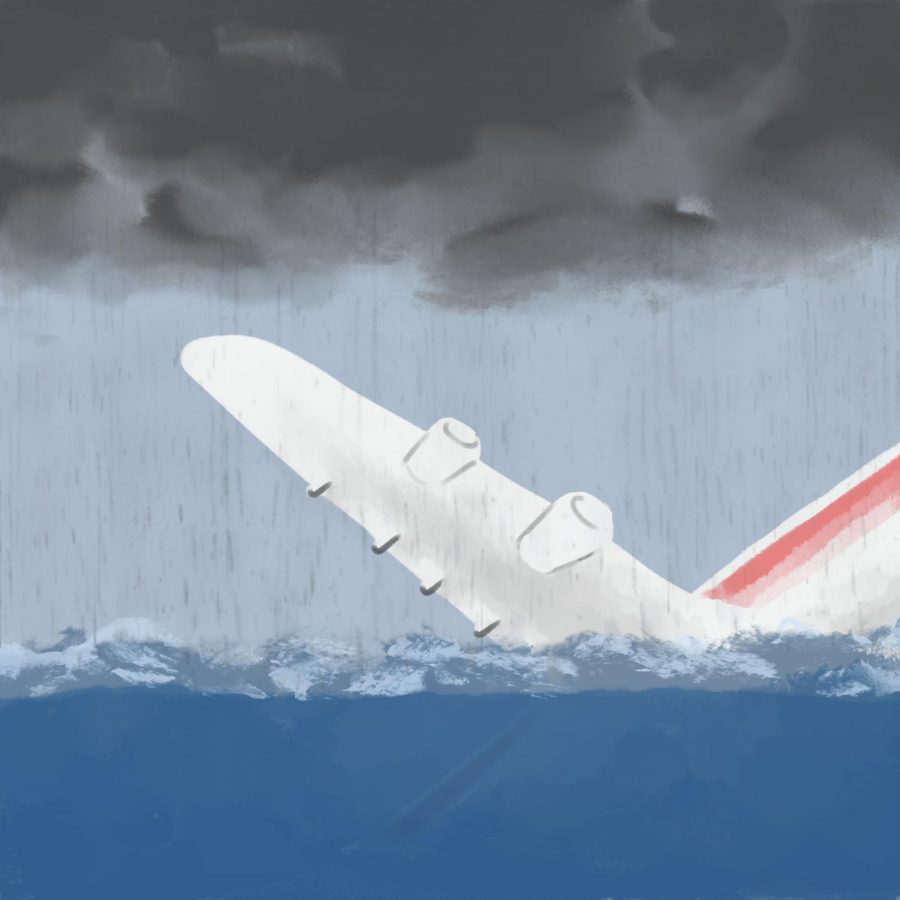A Brand New Plane, a Brutal Accident
NEW PLANE, NEW WORRIES: The new Boeing 737-800 MAX ‘s stall-prevention system may have caused the plane to crash.
November 27, 2018
On Monday, October 29th, a brand-new Boeing 737-800 MAX, under the biggest low-cost carrier in Southeast Asia, took to the skies as Lion Air flight 610 carrying a total of eight crewmembers and 181 passengers. Lion Air flight 610 was flying to Pangkal Pinang departing from Jakarta. Shortly after takeoff, the pilots requested to return back to Jakarta, but did not declare an emergency. According to The Aviation Herald, the Boeing 737 was able to climb to a “maximum altitude of about 5,400 feet, then lost height. Radar contact was lost about 35 nautical miles northeast of Jarkarta over the Java Sea.” None of the 189 souls on board survived the disaster that unfolded that Monday. It is rare for a commercial aircraft accident to occur according to the statistics, but for a plane crash to have no survivors is even more unlikely in present times.
The fact that a brand new aircraft (Boeing 737-800 MAX), with the latest and greatest technology designed to increase safety, was involved in a fatal accident could create serious concern to passengers. This may cause them to prefer older, less complex aircraft over the newer aircraft with complex safety systems that can be prone to failures. Senior Lauren Denkenberger says, “I think it depends. You never want to buy the first year of a new model car. They cannot predict the problems that can arise. On an older plane the parts can be worn down, It might not be the safest since it’s had so many miles on it.” Freshman Kieran Heiberg says, “I prefer newer aircrafts. Although there is some risk to it, they are coming out with newer technology.” Junior Garrett Hoffman says, “I would rather fly on an older aircraft since it has been proven to work.” It is clear that some passengers have mixed opinions on the debate of new verses old aircraft. Generally newer was considered safer, but this accident changed the game completely. However, this rare accident may not affect the new aircrafts’ reputation as much as predicted since some passengers are still perfectly fine with new aircraft despite the accident.
Many are still marveling at the fact that a brand-new Boeing 737 crashed into the ocean. According to The New York Times, the cause of the crash of Lion Air flight 610 is still under heavy investigation. However, “by examining the maintenance log of the plane’s penultimate flight from the day before the crash, aviation experts had already discovered that the single-aisle jet had problems with unreliable airspeed readings,” The Boeing 737-800 MAX aircraft had a new safety feature that was implemented to prevent the plane from stalling, or falling out of the sky due to the loss of lift. According to CNN, “Zwingli Silalahi, Lion Air’s operational director, said the manual did not tell pilots that in certain situations, the plane’s stall-prevention system could automatically trigger a response, such as lowering the airplane’s nose, to prevent or exit a stall.” If the airspeed becomes too low, or the angle of attack becomes too high for the aircraft to fly safely, the safety feature will automatically pitch the aircraft’s nose down. This maneuver increases the airspeed back to a safe speed and lowers the angle of attack to avoid stalling. The combination of unreliable airspeed readings from the aircraft’s instruments, witnessed on the maintenance log, and the new unheard of safety feature of the plane could have caused the plane to think it was going to stall, which led into an unexpected, uncontrollable dive into the ocean. The key to finding out what actually happened is in the flight and cockpit voice recorders. According to CNN, the aircraft’s “flight data recorder, was located Thursday, and investigators said it showed that Flight 610 had performed 19 flights including its final flight.” The flight data recorder is currently being analyzed by investigators. The plane’s cockpit voice recorder (CVR) still has not been recovered.
The tragic events that took place in Jakarta may have not impacted the reputation of air travel in the United States as much as it did in Indonesia. In response to Lion Air flight 610, sophomore Christian Mohr says, “It hasn’t really changed. It still feels pretty safe and reliable besides baggage claim.” Hoffman says, “I feel like these things are pretty rare occurrences.” Some passengers still see aviation as safe and reliable even after a recent horrific accident. This could be due to the fact that this accident happened in Indonesia, outside of the United States. It is difficult to feel the effect of something like this when you are so far away from it.
With a fatal plane crash in the supposedly safest form of transportation, many are wondering what can be done to prevent an accident like this one from occurring in the future. Mohr says, “On Boeing’s end, definitely check everything before it goes off to be shipped. Stuff should be checked after five to 10 flights or every week. Systems should be checked for flaws. If something is not working it should be taken out for repair.” Denkenberger says, “Make sure the standards are strict enough to make sure flights are safe. Increased pilot training is a must.” Changes to help prevent a future accidents like this one will most likely come after the full detailed accident report is created on Lion Air flight 610, where the real cause of the accident will be revealed.



